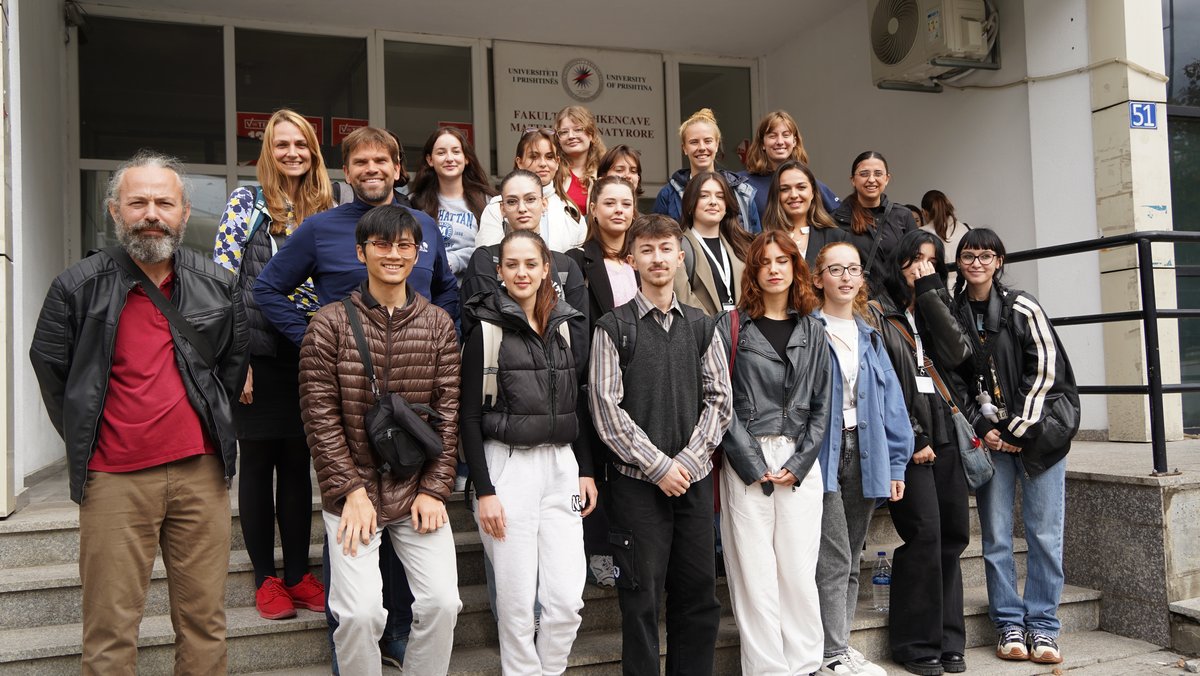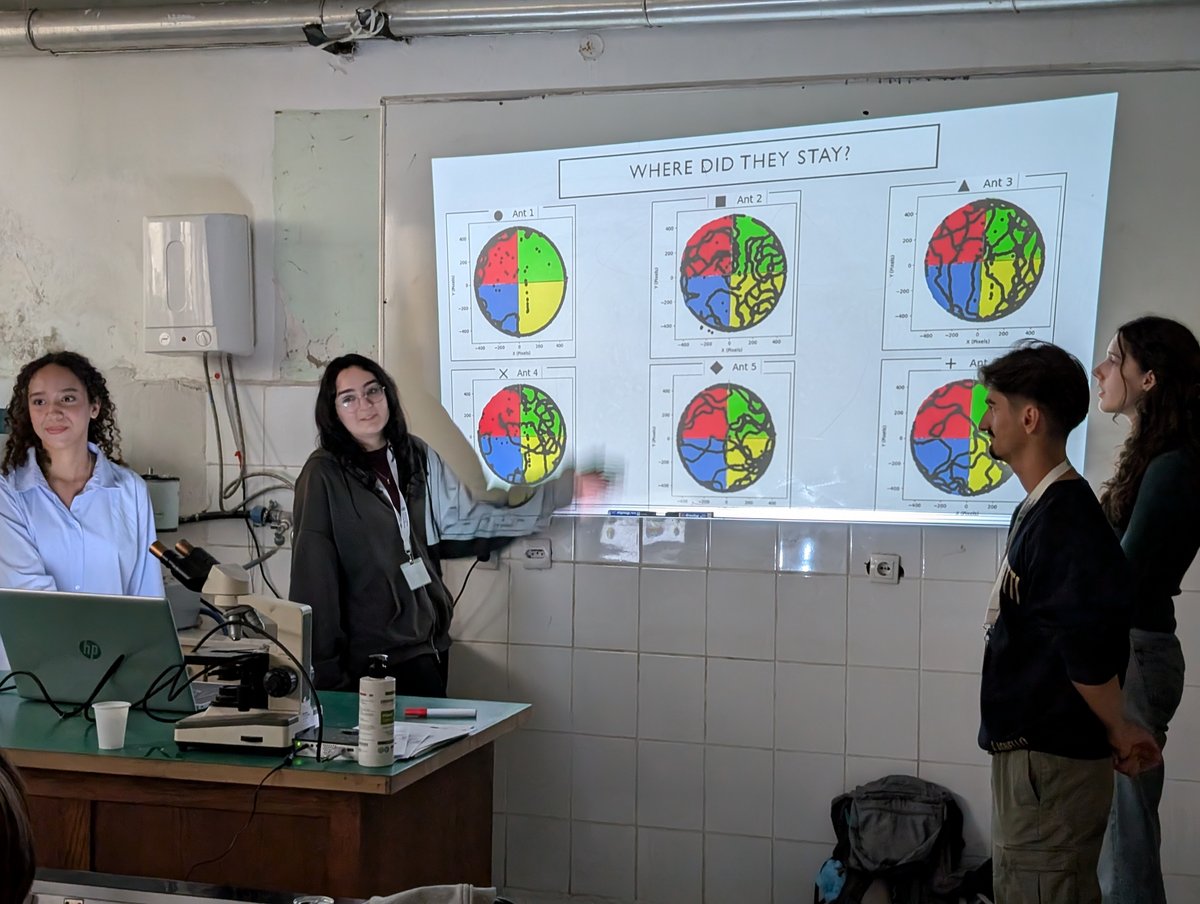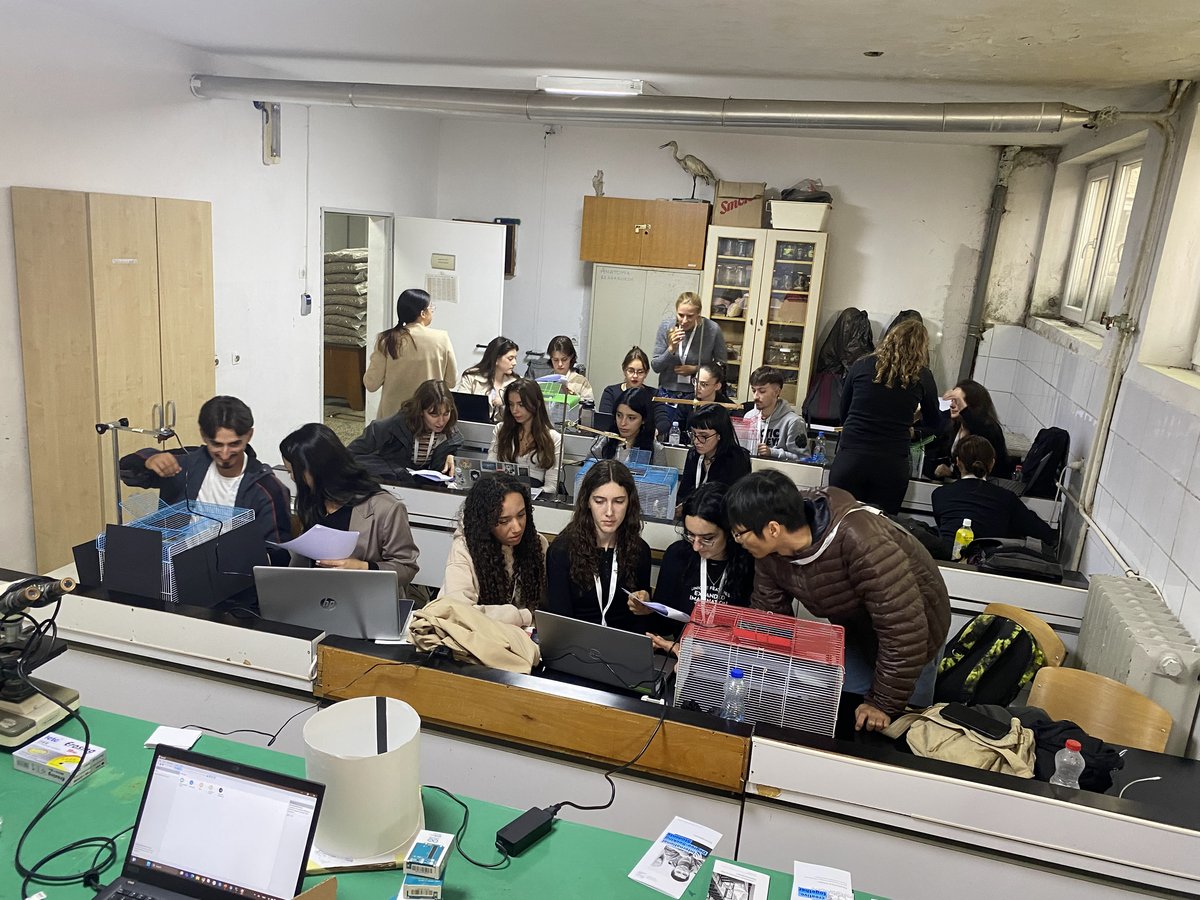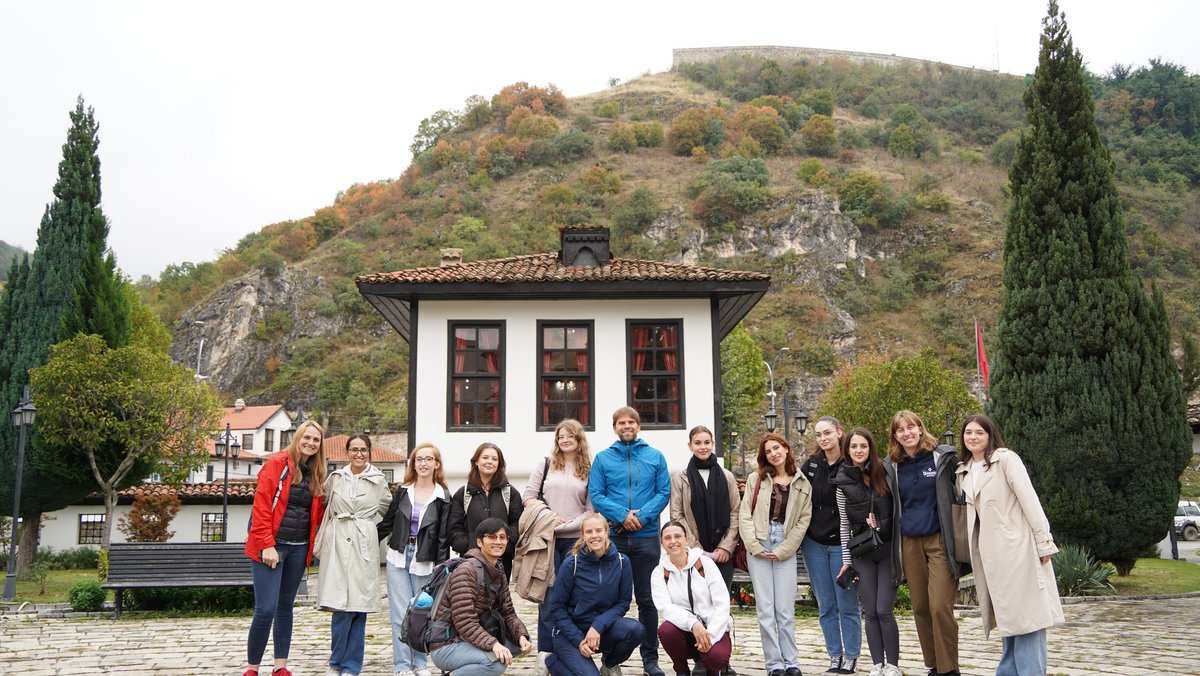Behavioural Neurobiology Summer School in Kosovo

Six researchers from the University of Konstanz's Cluster of Excellence Collective Behaviour recently wrapped up an exciting week of teaching in Prishtina, where they organized the 1st Summer School for Behavioral Neurobiology in Kosovo. Around 20 undergraduate students from the University of Prishtina had the opportunity to get hands-on perspectives on the research landscape in Konstanz. Besides its high value for international intellectual exchange, the Summer School is also aimed help to extend academic relations between the University of Konstanz and the University of Prishtina in Kosovo and build long-term collaborative bridges between the two institutions and countries.
Behavioural Neurobiology is a rapidly growing field that studies how the nervous system drives behaviour. By focusing on this interdisciplinary area, the Summer School aims to inspire students to explore new horizons in scientific research, particularly in regions where access to specialized training can be limited. We are thankful for the generous Erasmus+ funding, an EU program that supports education, training, youth, and sport across Europe, which made this event possible.
Through a series of daily morning lectures, students were introduced to the topics of behavioural neurobiology, collective behaviour, and robotics, allowing them to discuss and develop their own animal behavior-related research questions. Each day, after the morning lectures, students took part in hands-on, intensive programming and tracking setup-building sessions, allowing them to apply what they had learned. The results of subsequent experiments with real insects – collected on campus – were then analyzed for a final project presentation by the students. Projects were quite diverse: For example, a group developed automated ways to track color preference in ants, while another one built simulations of mosquito heat and odor gradient navigation. Yet, others tested how snails climb inclines and approach moist areas or how flies choose between different types of food.
One of the most exciting parts of the week was the exceptional motivation of all student participants. Everyone constantly asked questions during the lectures and was deeply engaged in intense discussions across topics. Students quickly developed an interest in the programming and automatization steps and were happy to put results together at the end and present them to their peers.
The idea to conduct the Summer School originated from Flutura Shabani, who did her bachelors at the University of Prishtina. During her studies, Flutura visited Konstanz through the Erasmus+ program. Afterwards she decided to come back to Konstanz for a master's degree. With the completion of her final thesis in the Bahl lab, Flutura Shabani expressed an interest in organizing and running a new teaching program in her home country to share her positive learning experience in Germany. Her direct link to the faculty at the University of Prishtina allowed our Konstanz team to secure lab space and advertise the event across the Biology and Psychology Departments.
The overwhelmingly positive feedback from participants indicates that the Summer School was a resounding success. Looking ahead, the Konstanz and Prishtina teams are already planning a second iteration of the event next year. They hope to make this an annual event, fostering long-term collaboration between both universities and creating new opportunities for motivated students and young researchers to engage in cross-border scientific exchange.
Report: Armin Bahl & Katrin Vogt
Armin Bahl is a professor at the University of Konstanz and also a member of the Cluster of Excellence Collective Behaviour and the Zukunftskolleg.
Katrin Vogt is a group leader at the University of Konstanz and a member of the Cluster of Excellence Collective Behaviour.




